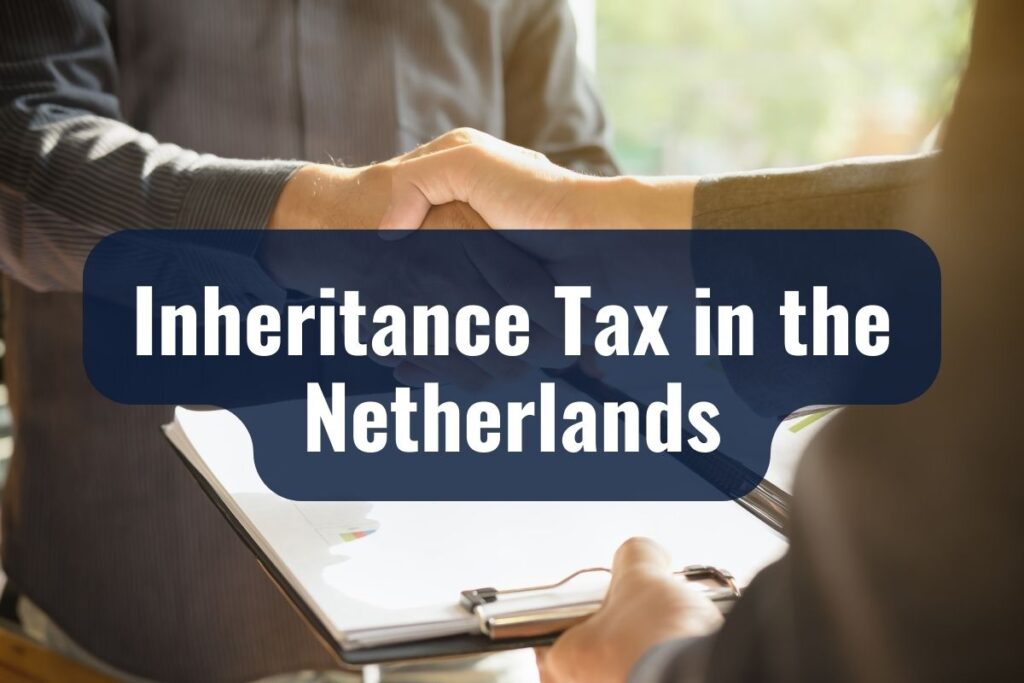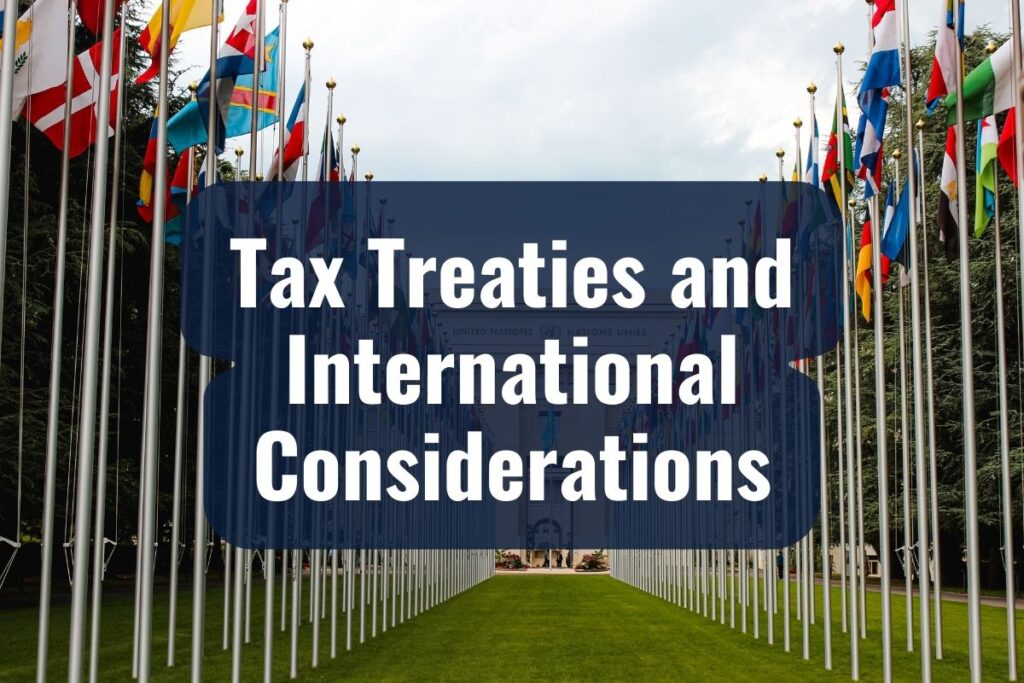The Dutch tax system, with its intricacies and nuances, plays a vital role in the day-to-day lives of its residents, and a solid grasp of its facets is crucial. Among the many taxes one might encounter, gift and inheritance taxes hold particular significance.
Whether you’re a foreigner thinking about gifting a family member, planning your estate, or simply trying to get a comprehensive understanding of your tax obligations in the Netherlands, this article aims to shed light on the essential details of the Dutch gift and inheritance tax.
Key Takeaways
- The Netherlands has a robust system for both gift and inheritance tax, each with its specific exemptions and rates.
- Historical context reveals that Dutch tax laws have evolved, echoing socio-economic dynamics.
- Tax treaties play a pivotal role in determining tax obligations for cross-border inheritances and gifts.
- Maintaining comprehensive records and seeking local expertise can greatly simplify compliance.
Gift Tax in the Netherlands

When discussing wealth transfer in the Netherlands, the topic of gift tax inevitably comes to the fore. This is a tax levied on assets that are given away during one’s lifetime. In essence, if you’re planning to generously bestow a part of your wealth onto someone, it’s essential to know how this act of giving is viewed in the eyes of Dutch tax laws. So, let’s delve into the specifics.
What Constitutes a ‘Gift’ for Tax Purposes?
At its core, a gift, from the perspective of the Dutch tax system, is any asset or right transferred without an equivalent counter-performance. This could range from monetary gifts to property or even shares in a company. However, it’s vital to note that not every generous act automatically falls under the gift tax purview. Some exemptions, as we’ll see, apply.
Gift Tax Rates and Their Variance
The amount of tax to be paid on a gift largely depends on the relationship between the giver, known as the ‘donor’, and the recipient or the ‘donee’. The Dutch tax system classifies recipients into different categories:
Partners and Children: The tax rate for this group starts at a lower percentage for smaller gift amounts and gradually increases for larger gifts.
Grandchildren: They are usually subjected to a slightly higher rate than immediate children.
Others: This category includes friends, distant relatives, and any other recipients. They typically face the highest tax rates on received gifts.
Explanation of Exemptions
While the idea of tax on gifts might seem stringent, the Dutch system provides certain reliefs and exemptions that make the process more manageable:
Annual Exemption Amounts
Depending on the relationship with the donor, recipients might be entitled to a specific amount as an annual exemption. This means gifts up to this amount in a year would not be subjected to any gift tax. The exact amounts vary for children, other relatives, and non-relatives.
Specific Exemptions
There are certain occasions or reasons for gifting that can fetch you additional exemptions. For instance, gifts meant for financing a recipient’s study or to help them purchase a home can qualify for special tax reliefs, subject to certain conditions.
Filing Process
Knowledge is only half the battle. Understanding how to go about declaring these gifts is just as crucial.
How to Declare Gifts
If you’ve received a gift that surpasses the exempted amount, it’s mandatory to declare it. The process involves filling out a specific gift tax return form.
Timeframe for Filing
Typically, if you’re required to file a gift tax return, it should be done by the end of April in the year following the year when the gift was received.
Documents Required
Along with the tax return form, you may need to attach relevant documents that detail the nature and value of the gift, especially if it involves property or shares.
Inheritance Tax in the Netherlands

Inheritance tax is another significant pillar of the Dutch wealth transfer system. When an individual passes away, their assets, in many cases, are passed on to heirs. This transfer of wealth is subjected to inheritance tax.
With its own set of nuances and regulations, the inheritance tax system in the Netherlands seeks to balance between state revenue and fair asset distribution. Let’s dissect this tax, understand its elements, and shed light on the obligations and exemptions involved.
What Does Inheritance Tax Cover?
Inheritance tax in the Netherlands is levied on the net value of the inheritance an individual receives after deducting liabilities such as debts. The net value could encompass various assets like real estate, bank savings, shares, jewelry, and even certain life insurance payouts.
Categories of Beneficiaries
Similar to gift tax, the amount of inheritance tax one is liable for depends on the relationship with the deceased. The tax system differentiates beneficiaries into several groups:
Partners
This includes spouses and registered partners. They often benefit from a lower tax rate and a higher exemption amount.
Children and Grandchildren
Direct descendants generally follow partners in terms of favorable tax rates, though with distinctions between children and grandchildren.
Others
Whether it’s friends, distant family members, or unrelated beneficiaries, this group usually faces a higher tax rate on inheritances.
Basic Exemptions
Understanding the exemptions is crucial as it can significantly impact the amount of tax owed:
Exemption Amounts
Each category of beneficiary has a specific exemption amount. For instance, partners often enjoy a generous exemption, ensuring that they can inherit a significant portion of the estate without being subjected to the tax.
Children and grandchildren have their respective exemption amounts, which, while lower than partners, still offer relief. And other beneficiaries, like friends or distant relatives, have a distinct exemption set for them.
Special Exemptions
Some special circumstances warrant additional exemptions. One notable example is the family home. If a partner inherits the family residence, under certain conditions, a part of its value might be exempted from tax calculations.
Filing Process
It’s vital for beneficiaries to be aware of the administrative side of things to ensure compliance:
Necessary Steps after Receiving an Inheritance: After inheriting assets, one must notify the Dutch Tax Administration. Based on the details provided, they will determine if an inheritance tax return needs to be filed.
Timeframes and Deadlines: Generally, the inheritance tax return should be filed within eight months from the date of the deceased’s passing.
Documents and Forms Required: Filing an inheritance tax return necessitates completing specific forms provided by the Dutch Tax Administration. Accompanying these forms, beneficiaries might be required to provide documentation that establishes the value of inherited assets, especially if they are non-monetary like property or artwork.
Related article: Undertstanding the 30% Ruling
Tax Treaties and International Considerations

In today’s globally interconnected world, it’s not uncommon for individuals to have assets spread across multiple countries, or for heirs to reside outside the country where the deceased held assets. The Netherlands, with its expansive history of trade and international relations, recognizes the complexities this can bring, especially in the realm of inheritance and gift tax. Hence, the Dutch government has entered into a series of tax treaties with various countries to streamline these scenarios and ensure clarity for its residents and those overseas.
Understanding Tax Treaties
Tax treaties are bilateral agreements between countries designed to prevent double taxation, that is, being taxed in two countries for the same asset or income. These treaties outline the rights of each country to tax specific types of income or capital and often provide for tax credits or exemptions to eliminate or reduce potential double taxation.
How Tax Treaties Impact Inheritance and Gift Tax
For foreigners in the Netherlands or Dutch citizens with assets or beneficiaries abroad, understanding the implications of these tax treaties can be paramount.
Inheritance from a Dutch Resident
If you’re a foreigner residing outside the Netherlands and you inherit assets from a Dutch resident, the tax treaty between the Netherlands and your home country will determine where and how the inheritance is taxed. Typically, real estate is taxed in the country where it’s located, while other assets may be taxed based on the residency of the deceased or the beneficiary.
Inheriting Assets from Abroad while Living in the Netherlands
Conversely, if you’re a foreigner residing in the Netherlands and you inherit assets from someone in another country, the tax treaty can provide guidance on how the inheritance is taxed. You might be eligible for credits or exemptions in the Netherlands for taxes paid abroad.
Gifts Across Borders
Similar principles apply to gifts. If you’re gifting assets to someone outside the Netherlands or receiving a gift from abroad, the tax treaty can dictate how the gift is taxed and which country has the primary right to tax.
Navigating International Considerations
While tax treaties provide a framework, navigating the specifics can be nuanced:
Residency and Domicile
Understanding one’s tax residency and domicile is essential. While tax residency is often based on where one lives and earns income, domicile can be influenced by factors like long-term intentions and family ties. Both can impact how inheritance and gift taxes are applied.
Declaration and Documentation
When dealing with international assets or beneficiaries, thorough documentation is vital. Whether it’s proving the existence of foreign tax payments to claim credits or providing valuations of overseas assets, being meticulous with paperwork is crucial.
Tips for Compliance

Ensuring adherence to tax laws, especially in an unfamiliar terrain like the Netherlands, can be a daunting endeavor. But as the saying goes, “forewarned is forearmed.” By arming themselves with a few essential tips, foreigners can ensure a smoother journey through the intricate paths of Dutch gift and inheritance tax compliance. Let’s dive into some practical pointers that can guide this journey.
1. Seek Local Expertise
The nuances of tax laws can be complex, and interpretations might vary. It’s often beneficial to engage a local tax advisor or attorney who is familiar with Dutch tax regulations. They can offer personalized advice and guide you through the unique intricacies that might apply to your situation.
2. Maintain Thorough Records
Be it a gift, an inheritance, or any relevant documentation like appraisals and valuations, maintaining a detailed and organized record is paramount. This not only simplifies the filing process but also ensures you’re prepared should there be any inquiries or audits from the tax authorities.
3. Stay Updated
Tax laws and regulations are not static. They can evolve based on legislative changes, new legal precedents, or changes in treaty provisions. Regularly updating oneself on these changes can ensure that you remain compliant and can take advantage of any new provisions or reliefs.
4. Understand the Implications of Dual Residency
If you have ties to another country, understanding the implications of dual residency can be crucial. This might influence which country has the primary right to tax and how credits or exemptions apply. Reviewing tax treaties and seeking advice on dual residency scenarios can be invaluable.
5. Plan Ahead
If you anticipate significant gifts or inheritances, it might be worth planning ahead. With the guidance of financial planners or tax advisors, you can strategize to optimize exemptions, leverage tax reliefs, and ensure that wealth transfers align with your financial goals and compliance requirements.
6. Open Communication
If you’re planning to give or are expecting to receive a substantial gift, open communication between the donor and recipient can be beneficial. Discussing intentions, potential tax implications, and planning together can reduce surprises and facilitate smoother tax compliance.
7. Address Mistakes Proactively
Errors happen. If you realize a mistake in a filed return or a missed declaration, addressing it proactively with the Dutch Tax Administration can be a wise approach. Being forthright and taking corrective action can mitigate potential penalties and reflect a genuine intention to comply.
8. Familiarize with Online Portals
The Dutch Tax Administration increasingly leverages online platforms for tax filings and communications. Familiarizing yourself with these portals can streamline the filing process and offer a convenient way to manage your tax obligations.
Frequently Asked Questions
| Question | Brief Answer |
| Can I benefit from both gift and inheritance tax exemptions in the same year? | Yes, they operate independently. |
| I received a gift from a Dutch resident, but I live outside the Netherlands. Do I pay gift tax? | Depends on donor’s residency and tax treaties. |
| How is the value of non-monetary gifts determined for tax purposes? | Based on the fair market value at the time of the gift. |
| If I inherit assets from someone not in the Netherlands, am I liable for tax? | Depends on your residency, asset location, and tax treaties. |
| Provisions for charitable donations or gifts to non-profits? | Gifts to ANBIs can be exempt or qualify for reduced rates. |
| What if I missed the filing deadline for my inheritance tax return? | File as soon as possible and potentially address penalties. |
Can I benefit from both gift and inheritance tax exemptions in the same year?
Yes, you can. The exemptions for gift tax and inheritance tax operate independently of each other. So, if you receive a gift and an inheritance in the same year, you can claim exemptions for both, provided they meet the stipulated criteria.
I received a gift from a Dutch resident, but I live outside the Netherlands. Do I need to pay gift tax in the Netherlands?
This primarily depends on the residency status of the donor at the time the gift was made. If the person giving the gift was a Dutch resident, the gift might be subject to Dutch gift tax, regardless of the recipient’s location. However, tax treaties can influence this, so it’s essential to review any applicable treaty provisions between the Netherlands and your country of residence.
How is the value of non-monetary gifts, like property or artwork, determined for tax purposes?
The valuation is typically based on the fair market value of the asset at the time of the gift or inheritance. This means the price that would have been realized under normal sales conditions in an open market setting. For specific assets like artwork or real estate, it might be advisable to seek an appraisal or expert valuation to ascertain this value accurately.
If I inherit assets from someone who was not a Dutch resident, am I still liable for inheritance tax in the Netherlands?
If you are a resident in the Netherlands and you inherit assets, you might be subject to Dutch inheritance tax. However, the exact liability will depend on the nature and location of the assets, your relationship with the deceased, and any applicable tax treaty provisions.
Are there any specific provisions for charitable donations or gifts to non-profit organizations?
Yes, gifts made to certain qualifying charitable organizations, known as ANBIs (Algemeen Nut Beogende Instellingen), can be exempt from gift tax. Similarly, if an ANBI inherits from an estate, it may be exempt or qualify for a reduced rate of inheritance tax. It’s essential to ensure the organization has official ANBI status to benefit from these provisions.
I missed the filing deadline for my inheritance tax return. What should I do?
If you’ve missed the deadline, it’s advisable to file the return as soon as possible to mitigate potential penalties or interest. While the Dutch Tax Administration might impose penalties for late filing, demonstrating genuine reasons for the delay and showing a proactive approach can sometimes lead to leniency.
Resources and Additional Help
The official website of the Dutch Tax Administration is a treasure trove of information. While much of it is in Dutch, there are sections in English tailored for foreigners. It covers essential forms, regulations, and announcements related to gift and inheritance tax.
If you’re considering gifts to charitable organizations and want to verify their ANBI status for tax purposes, the official ANBI database is an excellent starting point.
For foreigners with business interests or assets, the Netherlands Chamber of Commerce provides resources and guides on various tax-related matters, including inheritance implications for business assets.